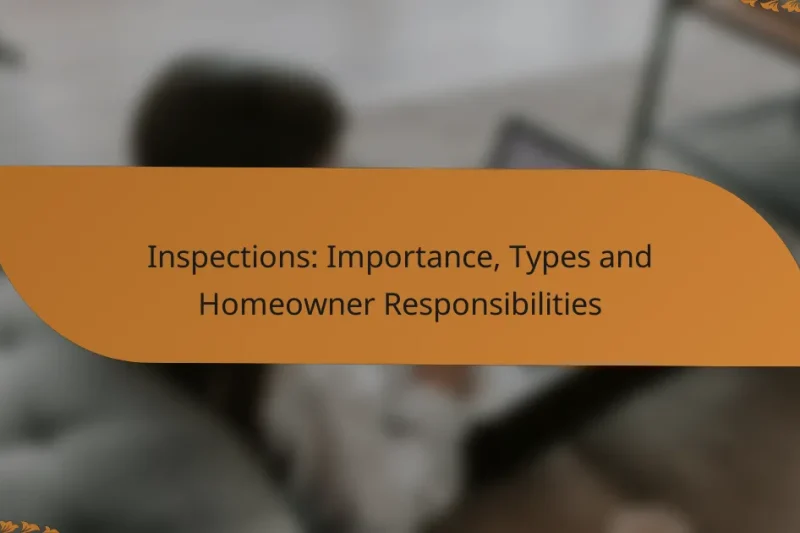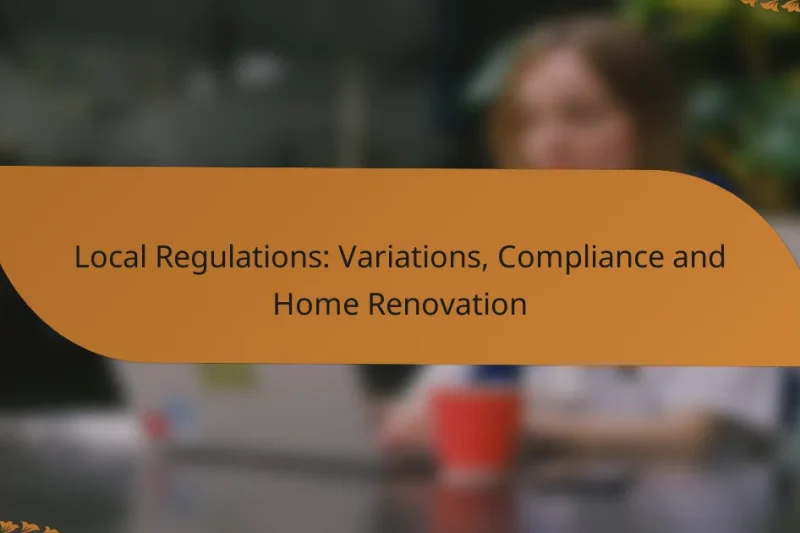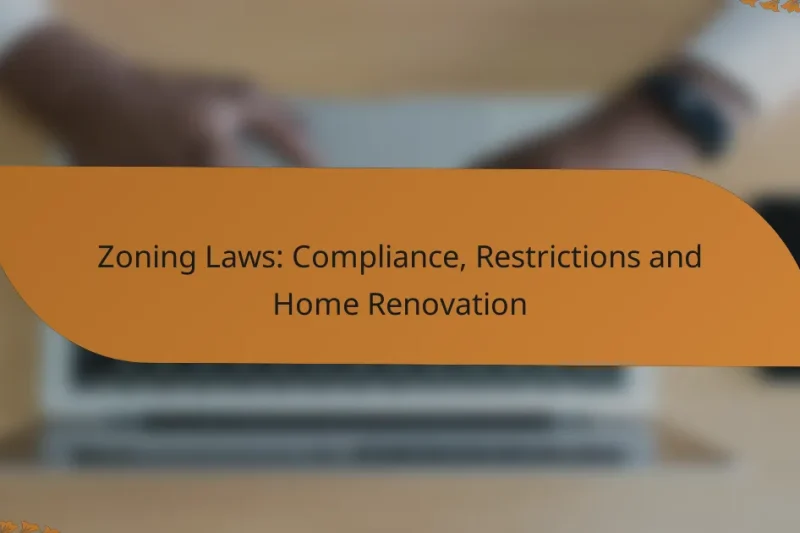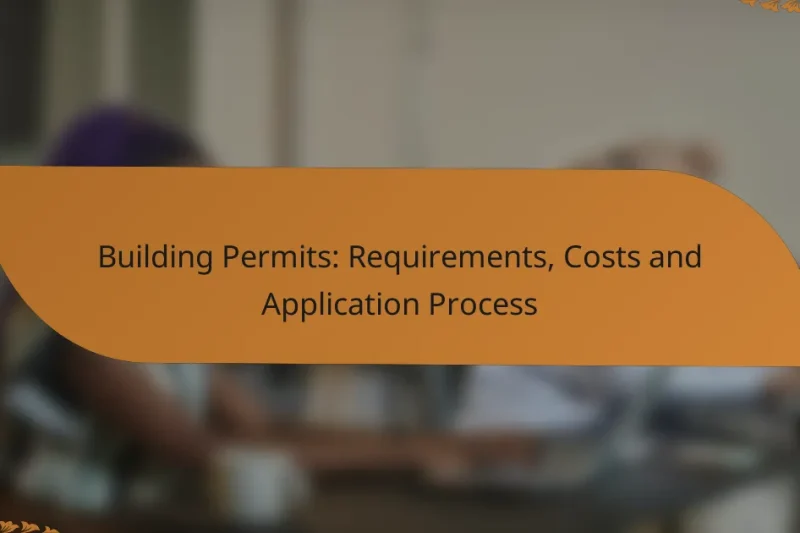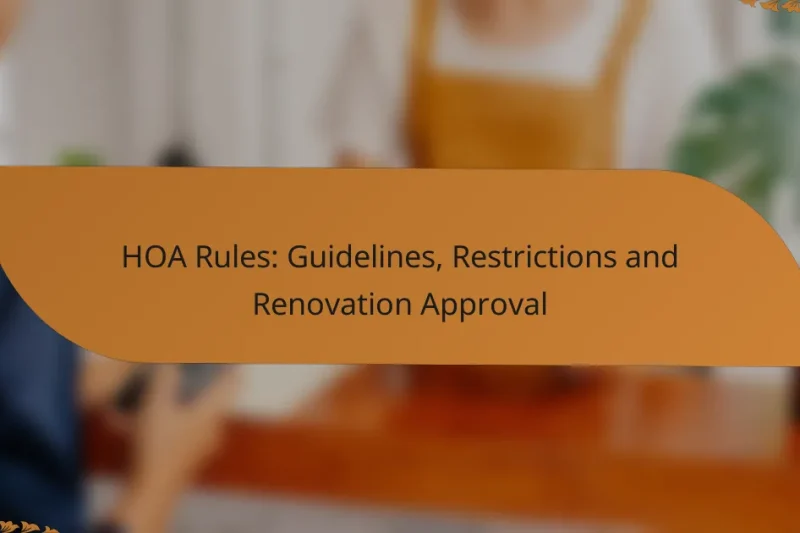Inspections play a vital role in maintaining the safety and value of a property, particularly in … Inspections: Importance, Types and Homeowner ResponsibilitiesRead more
Home Renovation Permits
When undertaking home renovations in California, obtaining the necessary permits is essential to ensure compliance with local building codes and safety regulations. In Los Angeles, homeowners must submit an application through the Department of Building and Safety, providing detailed documentation of their projects. Understanding the application process and avoiding common pitfalls can help prevent delays and additional costs.
Local Regulations: Variations, Compliance and Home Renovation
When undertaking home renovations, it’s essential to navigate local regulations that can vary significantly by location. … Local Regulations: Variations, Compliance and Home RenovationRead more
Zoning Laws: Compliance, Restrictions and Home Renovation
Zoning laws play a critical role in home renovation by establishing guidelines for land use, building … Zoning Laws: Compliance, Restrictions and Home RenovationRead more
Building Permits: Requirements, Costs and Application Process
Obtaining a building permit is a crucial step in any construction project, ensuring compliance with local … Building Permits: Requirements, Costs and Application ProcessRead more
Safety Codes: Standards, Compliance and Renovation Impact
Safety codes for building renovations in the United States are essential regulations that ensure structures are … Safety Codes: Standards, Compliance and Renovation ImpactRead more
HOA Rules: Guidelines, Restrictions and Renovation Approval
Homeowners Associations (HOAs) play a crucial role in maintaining community standards and property values through established … HOA Rules: Guidelines, Restrictions and Renovation ApprovalRead more
Permit Applications: Steps, Tips and DIY Renovation
Navigating the permit application process is essential for any DIY renovation project, particularly in areas like … Permit Applications: Steps, Tips and DIY RenovationRead more
What home renovation permits are required in California?
In California, several home renovation permits are typically required depending on the scope of the project. These permits ensure that renovations comply with local building codes and safety standards.
Building permits
Building permits are essential for most structural changes, including additions, alterations, and new constructions. Homeowners must submit detailed plans to the local building department, which will review them for compliance with zoning laws and safety regulations.
Fees for building permits can vary widely based on the project’s size and complexity, often ranging from a few hundred to several thousand dollars. It’s crucial to obtain this permit before starting any work to avoid fines or forced removal of unpermitted structures.
Electrical permits
Electrical permits are required for any work involving electrical systems, such as new wiring, circuit installations, or major repairs. These permits ensure that all electrical work meets safety standards to prevent hazards like fires or electrocution.
Homeowners should hire a licensed electrician to perform the work and pull the necessary permits, as unpermitted electrical work can lead to significant safety risks and legal issues.
Plumbing permits
Plumbing permits are necessary for any modifications to plumbing systems, including installations of new fixtures, pipes, or drainage systems. These permits help ensure that plumbing work adheres to health and safety codes.
As with electrical work, it is advisable to engage a licensed plumber to handle the project and secure the permit, as improper plumbing can lead to costly repairs and health hazards.
Mechanical permits
Mechanical permits are required for installations or modifications to heating, ventilation, and air conditioning (HVAC) systems. This ensures that all mechanical systems are safe and efficient.
Homeowners should consult with licensed HVAC professionals to ensure compliance with local codes and to obtain the necessary permits before any work begins.
Demolition permits
Demolition permits are needed for any significant demolition work, including tearing down walls or entire structures. These permits help regulate safety and environmental concerns during the demolition process.
Before applying for a demolition permit, homeowners should check for any historical preservation regulations or environmental assessments that may apply to their property.
How to apply for home renovation permits in Los Angeles?
To apply for home renovation permits in Los Angeles, you need to submit an application through the city’s Department of Building and Safety. This process involves filling out the necessary forms and providing documentation related to your renovation project.
Online application process
The online application process for home renovation permits in Los Angeles is straightforward. You can access the application portal on the Department of Building and Safety’s website, where you will create an account to start your application. Make sure to follow the prompts carefully to avoid delays.
After submitting your application, you can track its status online. This feature allows you to see if additional information is required or if your permit has been approved.
Required documentation
When applying for a home renovation permit, you will need to provide several key documents. Commonly required items include detailed project plans, site plans, and proof of ownership. If your renovation involves structural changes, engineering calculations may also be necessary.
It’s advisable to check the specific requirements for your project type on the city’s website, as additional documentation may be needed depending on the scope of your renovation.
Fees and costs
Fees for home renovation permits in Los Angeles can vary widely based on the project’s size and complexity. Generally, you can expect to pay anywhere from a few hundred to several thousand dollars. The fee structure is typically outlined on the Department of Building and Safety’s website.
Be aware that additional costs may arise from inspections or if your project requires modifications to comply with local codes. Budgeting for these potential expenses can help you avoid surprises during your renovation process.
What are the common mistakes when applying for renovation permits?
Common mistakes when applying for renovation permits include submitting incomplete applications, overlooking local regulations, and failing to meet deadlines. These errors can lead to delays, additional costs, or even permit denials, making it crucial to understand the application process thoroughly.
Incomplete applications
Submitting an incomplete application is a frequent mistake that can stall your renovation project. Ensure all required documents, such as plans, specifications, and proof of ownership, are included. Double-check the application checklist provided by your local authority to avoid missing any critical components.
In some areas, missing information can lead to automatic rejection of your application, which may require resubmission and additional fees. To prevent this, consider having a professional review your application before submission.
Ignoring local regulations
Ignoring local regulations is another common pitfall that can complicate the renovation process. Each municipality has specific zoning laws, building codes, and permit requirements that must be adhered to. Familiarize yourself with these regulations to ensure compliance and avoid fines or project delays.
For instance, some areas may have restrictions on building heights, property lines, or historical preservation rules. Consulting with a local contractor or architect can provide valuable insights into these regulations and help you navigate the permitting process smoothly.
Missing deadlines
Missing deadlines can significantly impact your renovation timeline. Many jurisdictions have specific timeframes for submitting applications, responding to requests for additional information, and commencing work once permits are granted. Be aware of these deadlines and mark them on your calendar to stay organized.
To manage deadlines effectively, create a timeline that includes all key dates related to your renovation project. This proactive approach can help you avoid costly delays and ensure your project stays on track.
What are the timelines for obtaining home renovation permits?
The timelines for obtaining home renovation permits can vary significantly based on the type of project and local regulations. Generally, homeowners should expect to wait anywhere from a few days to several weeks for approval.
Standard processing times
Standard processing times for home renovation permits typically range from one to four weeks. This duration depends on the complexity of the project and the local government’s workload. For example, minor renovations like interior painting may be approved quickly, while major structural changes could take longer.
It’s essential to submit all required documentation accurately to avoid delays. Common documents include detailed project plans, site surveys, and proof of ownership. Missing information can significantly extend the processing time.
Expedited options
Many municipalities offer expedited options for obtaining home renovation permits, which can reduce wait times to as little as a few days. These services often come with an additional fee, so homeowners should weigh the cost against the urgency of their project.
To utilize expedited processing, applicants typically need to meet specific criteria, such as having a complete application and adhering to local codes. Checking with the local permitting office can provide clarity on available expedited services and associated costs.
What are the consequences of not obtaining renovation permits?
Failing to obtain renovation permits can lead to significant consequences, including fines, legal troubles, and a decrease in property value. Homeowners should understand these risks to make informed decisions about their renovation projects.
Fines and penalties
Not securing the necessary renovation permits can result in hefty fines that vary by location and the scope of the work. In many areas, fines can range from a few hundred to several thousand dollars, depending on the severity of the violation.
Additionally, some municipalities may impose daily penalties for ongoing work without a permit, further increasing the financial burden. It’s crucial to check local regulations to understand the specific fines associated with your area.
Legal issues
Undertaking renovations without the required permits can lead to legal complications, including stop-work orders or even lawsuits from neighbors or local authorities. If a project is deemed unsafe or non-compliant, homeowners may be required to undo the work or face further legal action.
In some cases, homeowners may also find it challenging to sell their property if renovations were completed without proper permits, as buyers often seek assurance that all work is legally compliant.
Impact on property value
Renovations completed without permits can negatively affect a property’s value. Potential buyers may be wary of properties with unpermitted work, fearing future legal or safety issues. This can lead to lower offers or difficulty selling the home altogether.
Moreover, if unpermitted work is discovered during an inspection, the buyer may request repairs or price reductions, further diminishing the property’s marketability. Ensuring all renovations are permitted helps maintain and potentially enhance property value.
How to choose a contractor familiar with local permit requirements?
To choose a contractor familiar with local permit requirements, prioritize those with a proven track record in your area. Look for contractors who understand the specific regulations and processes necessary for obtaining permits for your renovation project.
Research local contractors
Start by researching contractors in your area through online reviews, local directories, and recommendations from friends or family. Check their websites for information on their experience with home renovations and local permit processes.
Consider contacting local building departments for a list of licensed contractors who frequently work in your municipality. This can help ensure you find someone who is knowledgeable about local regulations.
Ask about experience with permits
When interviewing potential contractors, directly ask about their experience with obtaining permits for projects similar to yours. A qualified contractor should be able to explain the permit process, including timelines and potential challenges.
Request examples of past projects where they successfully navigated local permit requirements. This will give you insight into their familiarity with the specific regulations in your area.
Check references and credentials
Always ask for references from previous clients, specifically those who had similar renovation projects. Contact these references to inquire about their experiences with the contractor’s handling of permits.
Verify the contractor’s credentials, including licenses and insurance. Ensure they are up-to-date and compliant with local regulations, as this can significantly impact the success of your renovation project.
